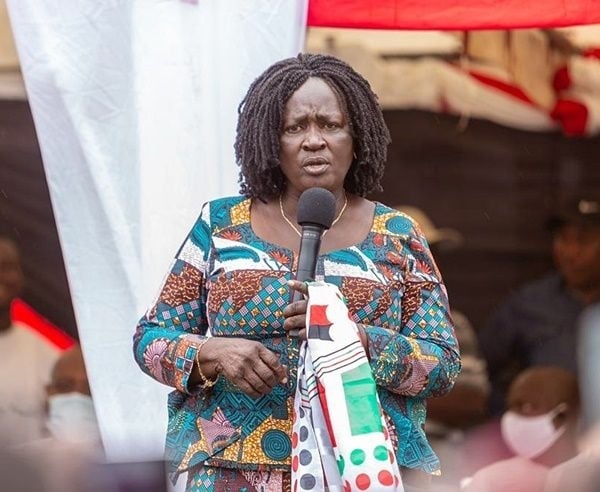The National Democratic Congress (NDC) is actively working to engage voters in the Bia East and West constituencies, focusing on the significant issue of spoilt ballots. During a recent engagement session in the Western North Region, the party’s Vice Presidential candidate, Prof. Jane Naana Opoku Agyemang, underscored the importance of educating voters about the voting process. She emphasized that a well-informed electorate is critical for the party’s success in the upcoming elections. Prof. Opoku Agyemang expressed concern over the persistent problem of spoilt ballots, advocating for efforts to eradicate this issue as it directly impacts the party’s ability to secure a one-touch victory.
The discussion highlights the expected outcomes of properly informing voters, suggesting that understanding the voting process will enhance the NDC’s electoral performance. Prof. Opoku Agyemang’s remarks are a call to action not only for the party’s supporters but also for all citizens who wish to see a fair and effective electoral system. Recognizing that a vote is a powerful tool for change, the NDC aims to minimize the potential for electoral discrepancies that could arise from ignorant or confused voting behaviors.
Local chiefs in the region added their voices to the conversation, articulating their aspirations for the NDC to prioritize essential infrastructure development if they come to power. Chief Nana Yaw Pra III of Kwasare, representing the chiefs, highlighted the pressing need for investments that can facilitate growth and improved living conditions in the region. This appeal for development underscores the critical intersection between electoral success and regional improvement. It reflects a broader understanding that elected officials must address the infrastructural needs of their constituents to earn and maintain their trust and loyalty.
The event also served as a platform for community engagement, where residents expressed their hopes and concerns to party leaders directly. By fostering a dialogue between prospective leaders and constituents, the NDC is attempting to build a relationship founded on transparency and mutual understanding. This approach could bolster the party’s standing among voters, as involvement in local issues shows a commitment to actionable change rather than mere political rhetoric.
The strategy employed by the NDC mirrors a broader trend seen in political campaigns, where direct engagement and grassroots mobilization are becoming increasingly important. In a time when voters are more informed and have higher expectations from political parties, the emphasis on eliminating spoilt ballots and improving the voting experience is essential. By prioritizing education and infrastructure development, the NDC hopes to institute a more reliable and responsible governance that resonates with the electorate.
Going forward, the emphasis on voter education and community development may serve as a powerful formula for electoral success. The NDC’s commitment to addressing issues like spoilt ballots while also responding to local development needs sets a comprehensive agenda that addresses both the immediate concerns of constituents and broader electoral integrity. As the political landscape evolves, the efficacy of these strategies will ultimately be tested in the upcoming elections, and their ability to resonate with voters will be crucial in determining the future leadership of the region.














